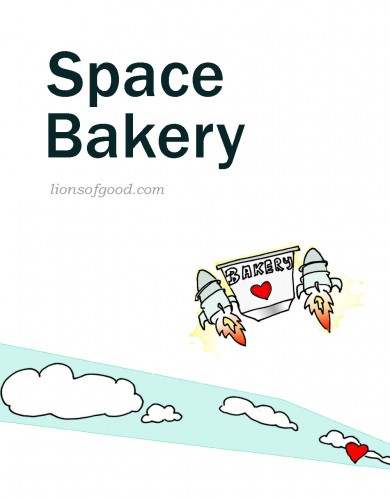
This the real reason we keep our dog around… entertainment
That’s our dog Kimi in the picture above. We adopted her from a shelter when she was a puppy (her previous owner was incarcerated). And as if having Chihuahua/Terrier blood wasn’t bad enough, her early separation from her mom and puppyhood trauma gave her a couple more dysfunctions. She’s a furbag of neuroses.
As cute as some may think she is with her floppy ears, we’ve considered giving her away a couple of times. I know… you might say she’s like family now and it’s cruel to abandon your family. But let me tell you more about her and tell me if you disagree then…
She is nervous and insecure by nature. We’ve housetrained her and she’s normally really good about waiting for us to take her out, except when she gets nervous or excited. E.g. loud noises; fireworks; a visitor with a high voice… or suddenly one day— for whatever reason —she thinks that today will be different from the last 824 days she’s been with us… and that we’re never coming home for her. That’s when she loses her bladder control.
We’ve since crate-trained her, and that’s made her much calmer. But that makes her a useless guard dog. As for expenses, she’s ruined our mattress and soiled our couch… she has incurred a far greater cost for food, carpet cleaning and medical bills (from her uncanny way to find and eat things she shouldn’t) than it cost to adopt her…
… and it’s not like we can make any money with her either. She’s a mutt so no one wants her as a model. Her ancestors were wolves but any usefulness they had has been bred out of her. Now she’s too small to carry anything, and too tiny and bony to be a good pillow or foot warmer. The ungrateful rat doesn’t even help around the house. She just eats, sleeps, pees and poos, trips us as we’re walking and gets into trouble when we’re not looking.
As an investment, she’s a catastrophic failure.
But despite all that, we still keep her around. Want to know why? I’ll tell you. It’s simple…
Each time I threaten to murder her, Melisa says: “But Joshua likes her.”
Those 3 words are all it takes to magically transform a worthless beast about to get stir-fried, into a priceless family asset. And that’s why we’ll never get rid of her.
Alright. So how’s this apply to your business?
When Melisa pointed out that Joshua likes Kimi, I wasn’t upset. She helped me see that Kimi wasn’t just a 4-legged mini-beast, but a friend, playmate and companion that Joshua will share his one-and-only childhood with. In that light, the inconvenience of sustaining her existence is worth it.
In your business, for whatever you’re selling, it’s important to dig deep and narrow in on the true desires of the people you serve. When you do, you will often discover that what they really want transcends a mere product or service. Therefore, what you offer should also transcend mere products and services.
You should never sell what you think you’re selling. Most people do, but that’s exactly what makes it the wrong thing to do. Selling anything for only what it appears to be is a disservice to your people.
Here’s why: On one hand, human desire is limitless. On the other hand, anything obvious and tangible very quickly becomes common and abundant (because of today’s technology). Anything from products like furniture, clothes and software… to services like design, personal training… if you sell anything for what it is, you submit yourself to being easily replaceable by any other business that can do what you do.
If you’re a small business, this is an even deadlier mistake because larger companies will have the economic advantage to match your offering, AND deliver it at a much lower price than you can sustain.
Your secret weapon against mass-production and its ever increasing pressure on prices… is to avoid selling things that can be mass-produced or “delivered at a distance”, and always augment mass-produced items with things that can’t be mass-produced (such as exceptional experiences, expertise, services, relationships, community or fraternity).
Sell unique experiences. Sell fantasies. Sell to aspirations, ideals and symbols.
In general, if people can make buying decisions with a table to compare what you offer against your competitors, you have failed. It is a glaring indication that you have failed to define a unique positioning for your business.
The only thing worse is if you willingly put yourself in a position where you invite such comparisons. E.g. listing yourself in directories for your profession, identifying yourself as a member of a constituency, or using tables to compare your business with your competitors (if you do this in your own marketing material, shame on you). Because that automatically confines you within a category, and everything you offer will be evaluated relative to other businesses in your category.
Back to my dog to illustrate my point. In the category of “Dog”, there are only small genetic differences between her and a million other mutts like her. And in general, they all have four legs, a tail, eat, pee, poo, etc.
But if you remove “Dog” out of the equation, comparison gets tricky. For example, how will you choose a better Companion? A Hiking partner? A Best Friend?
The point is, in order to overturn the economics in your favor, you must transcend your obvious product and service, and go where no one else is willing to go.
Identify your ideal customer’s most acute demand… then reduce the perceived supply of what you offer to one. Position your business so that it is unique… by making comparison impossible.
Next: it’s no longer enough to be remarkable



Add your comment: